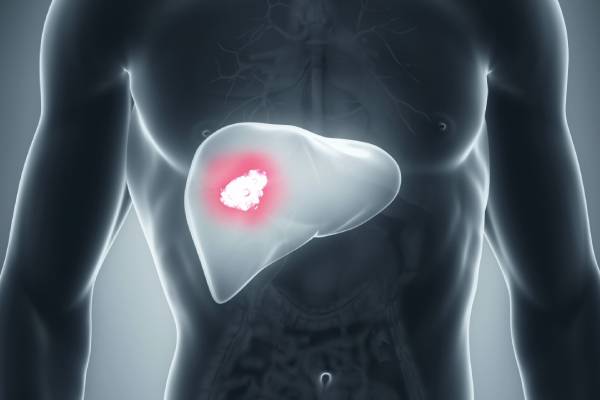Liver Cancer Surgeon in Hyderabad
Are you looking for the best liver cancer surgeon in Hyderabad? Dr. M.S.S. Keerthi is an excellent choice for liver cancer treatment by providing topnotch care for patients, she has treated more than 10000+ cancer patients and currently, Dr. M.S.S Keerthi is working as Sr. Consultant Surgical Oncologist and laparoscopic and robotic Surgeon at Tulasi Hospital, and Evoke Clinic at Securandarbad, Telangana.

With her exceptional expertise, patient-centric philosophy, and steadfast dedication to excellence, Dr. M.S. S Keerthi has firmly established herself as a leading liver cancer surgeon . Whether you seek advanced treatment for liver cancer or personalized care for related concerns, Dr. M.S. S Keerthi, Surgical oncologist in Hyderabad offers unparalleled services customized to your individual needs.
What is liver cancer ?
Liver cancer, also known as Hepatocellular carcinoma (HCC), is a malignancy that originates in the liver cells. It is among the most prevalent cancers worldwide and a significant cause of cancer-related mortality. Liver cancer can manifest in various forms, including primary liver cancer, which originates within the liver, and secondary liver cancer, which spreads to the liver from other parts of the body.
Stages of the Liver Cancer:
Dr. M.S.S. Keerthi Liver Cancer Surgeon in Hyderabad, explains the stages of liver cancer and how far spread of cancer occurs:
- Stage 0: Cancer is localized, hasn’t invaded deeper tissues.
- Stage I: A single tumor up to 2 cm in diameter, confined to the liver.
- Stage II: Single tumor larger than 2 cm or multiple tumors, none larger than 5 cm, still confined to the liver.
- Stage III: Tumor( s) invade near blood vessels or organs but have not spread distantly.
- Stage IV: spread to near lymph bumps or distant organs.
Causes of Liver Cancer:
Best cancer specialist in Hyderabad ,Dr MSS Keerthi says liver cancer can be caused by various factors that damage the liver cells and disrupt normal cell growth processes. Some of the primary causes and contributing factors to liver cancer include:
- Chronic Liver Diseases, like Cirrhosis: One of the leading causes of liver cancer is chronic liver disease, especially cirrhosis. Cirrhosis is often the result of long-term damage to the liver caused by conditions like excessive alcohol consumption, hepatitis B or C infections, or non-alcoholic fatty liver disease (NAFLD).
- Hepatitis B or C Infections: Chronic infections with hepatitis B or C viruses can significantly increase the risk of developing liver cancer over time.
- Excessive Alcohol Consumption: Prolonged and excessive alcohol consumption can lead to liver damage and increase the risk of liver cancer.
- Obesity: Obesity is a known risk factor for liver cancer, as it can lead to the accumulation of fat in the liver, inflammation, and scarring.
- Family History: Individuals with a family history of liver cancer may be at a higher risk, as there can be genetic predispositions to the disease.
Symptoms of Liver Cancer:
The symptoms of liver cancer can vary and may not appear in the early stages. Common symptoms include:
- Abdominal Pain or Discomfort: Pain or a feeling of fullness in the upper abdomen is a common symptom of liver cancer.
- Jaundice: Yellowing of the skin and eyes (jaundice) can occur when the cancer affects the liver’s ability to process bilirubin.
- Unexplained Weight Loss: Significant and unexplained weight loss can be a sign of liver cancer.
- Fatigue: A general feeling of weakness and fatigue can result from the cancer’s impact on the liver’s functions.
Diagnosis and Treatment:
Diagnosis: Liver cancer is typically diagnosed through a combination of tests, including imaging tests , blood tests, and sometimes a liver biopsy to confirm the presence of cancer.
Blood tests: Blood Tests may be done to measure situations of certain substances in the blood that can indicate liver function and the presence of liver cancer, similar as alpha- fetoprotein( AFP) and liver function tests( LFTs).
Biopsy: If imaging tests suggest the presence of liver cancer, a biopsy may be performed to confirm the diagnosis. During a biopsy, a small sample of liver tissue is removed and examined under a microscope by a pathologist to look for cancer cells.
Imaging tests: Imaging tests for liver cancer include ultrasound, CT scans, MRI scans, and PET scans. These tests help visualize the liver and discover abnormalities. Ultrasound uses sound waves, CT scans combine X-rays for detailed images, MRI scans use glamorous fields and radio waves, and PET scans highlight cancerous areas using a radioactive tracer.
Treatment: Treatment options provided by Liver Cancer Surgeon in Hyderabad Dr. Keerthi for liver cancer depend on the stage of the disease and the patient’s overall health. They can include:
- Surgery: Surgical options may involve removing the tumor (partial hepatectomy) or a liver transplant in cases where the cancer is confined to the liver and the patient is a suitable candidate.
- Chemotherapy: Chemotherapy drugs can be used to target and kill cancer cells.
- Targeted Therapy: Targeted therapy drugs focus on specific molecules involved in the growth and spread of cancer cells.
- Radiation Therapy: High-energy X-rays are used to kill cancer cells or slow their growth.
- Ablation and Embolization: Procedures like radiofrequency ablation or transarterial chemoembolization can be used to treat liver tumors.
Prevention of Liver cancer:
According to the best liver cancer surgeon in Hyderabad Dr. M.S.S Keerthi, to prevent liver cancer, individuals can take several steps to reduce their risk:
- Getting vaccinated against hepatitis B.
- Avoiding needle sharing.
- Limiting alcohol intake.
- Maintaining a healthy weight.
- Eating a nutritious diet.
- Managing chronic liver diseases.
Why Choose Dr. MSS Keerthi for Liver Cancer Surgeon in Hyderabad:
- Expert Oncologist: Dr.M.S.S. Keerthi, Best Gynecologic Oncologist in Hyderabad is described as an expert surgical oncologist with more than 15+ years of experience in performing various cancer surgeries. Having specialized in Surgical Oncology from the Cancer Institute, she’s likely to retain a deep understanding of liver cancer and its treatment.
- State-of-the-Art Facility: The citation of a state- of- the- art facility suggests that the medical structure where Dr. M.S.S. Keerthi practices are equipped with improved technologies and ultra modern amenities. And other installations like wheelchair accessible, cleaned toilets and proper consulting rooms.
- Clinic Location: Dr. M.S.S. Keerthi practices at Tulasi Hospital and Evoke Clinic in Secunderabad, Telangana.
- Diagnostic Services under one Roof: The availability of diagnostic services in the same facility can streamline the individual process for patients. Having all necessary experiments and services like stomach cancer treatment, oral cancer treatment, & targeted therapy in one position may conduct to a more effective and coordinated path to diagnosis and treatment planning.
- Experienced & Trained Staff: Dr. M.S.S. Keerthi is supported by experienced and trained staff, which implies a collaborative and well-coordinated approach to patient care.
- Personal Care: Dr. M.S.S. Keerthi is noted for her compassionate and tailored approach to patient care, which includes listening to patients’ concerns and working closely with them to establish personalized treatment programs.
Book An Appointment:-
Dr. M.S.S Keerthi provides the best treatment for various cancer diseases in Secunderabad and Hyderabad. For more information about our comprehensive treatment options, or to request an appointment with the best surgical oncologist in Secunderabad, Hyderabad call +91 9490808080 or Click on Book Appointment for online booking.
Frequently Asked Questions (FAQ's):
Liver cancer can be prevented by addressing its risk factors. This includes getting vaccinated against hepatitis B, avoiding excessive alcohol consumption, maintaining a healthy weight, and seeking early treatment for chronic liver diseases.
The liver is a vital organ responsible for numerous essential functions, including processing nutrients from food, filtering toxins from the blood, storing energy in the form of glycogen, and producing proteins necessary for blood clotting and maintaining overall health.
The prognosis for liver cancer depends on the stage at diagnosis. In its early stages, liver cancer can be curable, especially if the tumor is small and hasn’t spread. However, in advanced stages, it may be more challenging to cure, but treatments can still help manage the disease and extend life expectancy. Early detection and appropriate treatment are key to improving the chances of a favorable outcome.
Liver cancer life expectancy varies based on stage, health, and treatment effectiveness. Generally poor, with a median survival of 6-20 months for advanced cases
